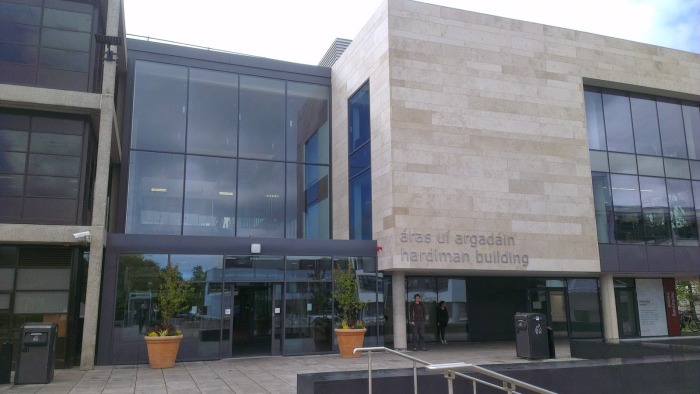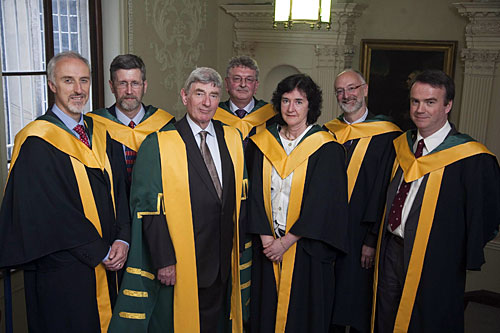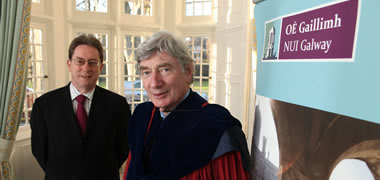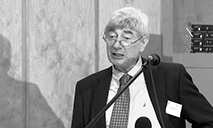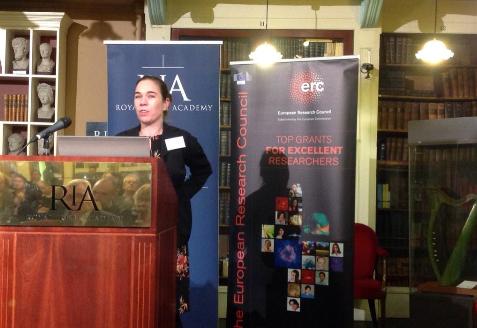
It is our pleasure to publish our conference programme and schedule of events for IHSA2016. Any queries may be addressed to ihsa2016@gmail.com
Eamonn & Committee
***
Friday, 19 February
1900 Arrival & Exhibition, Moore Institute Rooms, Ground floor, Hardiman Research Building
1930 Speeches.
Eamonn T. Gardiner, MC & Lead Organiser
Dr. Sarah-Anne Buckley, Chair, IHSA National Committee
Prof. Dáibhí Ó Crónín, History Department Welcome
Prof. Steven Ellis, Formal Opening of Conference
2000 Reception & Exhibition
2100 Social: History Quiz in College Bar.
Saturday, 20 February
0830-0855 Registration (€15) & Morning Coffee 1 in Arts Millennium Building.
0855-0900 Welcome/Health & Safety Briefing
0900-1015 Round A of Panels (75 mins).
1015-1035 Coffee Break 2
1035-1150 Round B of Panels (75 mins)
1150-1210 Coffee Break 3
1210-1325 Round C of Panels (75 mins)
1325-1335 Move from Arts Millennium to College Bar (10 mins)
1335-1420 Lunch (College Bar)/AGM (AM Building) (45 mins)
1420-1430 Move from College Bar to Arts Millennium for Workshop.
1430-1530 Workshop: Research Funding Opportunities (60 mins).
1530-1535 Leave Workshop and move to rooms for Round D
1535-1650 Round D of Panels (75 mins)
1650-1710 Coffee Break 4
1710-1825 Round E of Panels (75 mins)
1825-1835 Closing remarks and final reminder dinner timings & Sunday programme.
1835-2030 Arrive at Harbour Hotel for Pre-Meal Reception
2030-2200 Dinner (Prosecco Reception & 5 Courses, €25)
2200-2245 Eamonn T. Gardiner MC.
Introduction by Dr. Mary Harris, Senior Lecturer, NUI Galway & ‘A Nation Rising’, 1916 Commemorative Programme Coordinator
After-Dinner Speaker: Professor Emeritus Nicholas Canny, NUIG. http://erc.europa.eu/organisation/canny-nicholas
2245-2315 Prize giving
2315+ Post Dinner & Move to other venues.
Sunday, 21 February
1200-1300 Walking Tour of Galway.
Early Modern & Revolutionary Galway
Round A 09:00-10:15
(A1) Narratives from Christian Ireland
Chair: Kieran Hoare
- Ossory on the Eve of the Reformation
- Bernadette O’Brien, NUI Galway
- Brigit and pregnant women: discussion on the issue
- Dmitrii Glass, Mary Immaculate College
- Is there a Problem of Saint Patrick? If so, is there a solution?
- Nathan Dunphy, NUI Galway
(A2) Twentieth-Century Philosophical, Logical and Cultural Approaches
Chair: Dr. Tomás Finn
- Catholic anti-communism, the Cold War, and peace and nuclear disarmament campaigns in Ireland.
- Gerard Madden, NUI Galway
- ‘A pioneering historian of ideas: Robert Blakey, and the birth of a disciplinary genre.’
- Stuart Mathieson, Queens University Belfast
- AUDIO-VISUAL: Letting the Sources Speak: Title: ‘Gainsbourg: A ‘Serge’ of Sexual Content in French Popular Culture, 1966-1991’
- Robert Flatley, NUI Galway
(A3) Race in the Americas from the Colonies to the Civil War
Chair: Dr. Enrico Dal Lago
- “A Rich Man’s Government… A Poor Man’s Fight”: Class Conflict and Unionist Dissent in the Confederate South.
- Jordan Markey, NUI Galway
- ‘Bound to Serve’ White indentured Labour in Colonial America.
- Leanne McMullan, University of Ulster
- Religion, Racism, & Perfidious Albion: Irish Soldiers in the Union Army during the American Civil War.
- Florry O’Driscoll, NUI Galway
(A4) Shades of Roman Catholicism in Ireland, 1844-1950
Chair: Dr. Roisín Healy
- St Vincent de Paul in Dublin, 1844-1918: Friends of the Poor or Self-Serving Religious Zealots?
- Bernadette O’Connell, NUI Galway
- The Roman Catholic Church in Sligo during the Great War.
- Simone Hickey, St. Angela’s College
- The Irish Catholic Missionary Experience in the Twentieth Century
- Kate Brophy, Trinity College Dublin
(A5) Nineteenth-Century Irish Nationalism
Chair: Dr. Carmel Connolly
- Alternative solutions to the intractable Irish question, 1892-1902.
- The Persistence of Nationalist and Anti-State Sentiment in Ulster, 1848-1867
- Kerron Ó Luain, Independent Scholar
- The Road from Kilmorna: Canon Sheehan, Fenianism, and prefiguring 1916
- John O’Donovan, University College Cork
Round B 10:35-11:50
(B1) Warfighting as an aid to Civil Governance.
Chair: Dr. Pádraig Lenihan
- ‘Pax Romana’: The true triumph of the Roman people
- George Baldry, NUI Galway
- ‘To defend those who have no swords’: The birth of Crusading as theological disruption and political evolution
- Declan Mills, University of Limerick
- Between Success and Surrender: Thomas Wentworth, Lord Deputy of Ireland, 1633- 1639.
- Marie Sophie Hingst, Trinity College Dublin
(B2) A Postmodern History of Human Rights and Terrorism
Chair: Dr. Kevin O’Sullivan
- Operation Allied Force, Humanitarian Intervention and the Kosovo war of 1999Cian Moran, NUI Galway
- Refugees and Humanitarian Aid as Weapons of War: Cambodia and Rwanda.
- John O’Donnell, NUI Galway
- Bullets, Bombs & Blood: Chechen Terrorist Tactics and Beyond
- Francesco Conti, NUI Galway
(B3) The Evolution of Warfare during Irish Revolution, 1916-1923
Chair: Dr. Conor McNamara
- ‘Scattered, Ambushed and Laid Out’: War and Counterinsurgency in North Galway 1919-1921
- Eamonn T. Gardiner, NUI Galway
- The importance of Dublin during the Irish War of Independence
- Thomas Tormey, Trinity College Dublin
- ‘A Cycle of Violence’: Analysing the Role of the Bicycle during the Irish Revolutionary Period 1916-1923
- Bryan Treanor, St. Patrick’s College of Education/DCU
(B4) Re-evaluating Education: Irish and American examples
Chair: Dr. Jackie Uí Chionna
- The post-primary school in Ireland, 1940-58: A case study of the Presentation Order
- Catriona Delaney, University of Limerick
- “To Educate Themselves”: African American Teachers in North Carolina’s Schools for the Freed People, 1861-1876
- Anne Marie Brosnan, Mary Immaculate College
- Looking To The Past To Build For The Future’: State-Building, Curricular Developments, And School History In Post-Independence Ireland, 1924-69
- Colm MacGearilt, Trinity College Dublin
(B5) Changes in Irish Political Landscape, 1913-1923
Chair: Dr. Joe Regan
- The role of Lord Decies, Press Censor for the British Administration in Ireland, 1916-19, or how I learned to stop worrying and love the Censor
- Alan McCarthy, University College Cork
- Assessing the contributing factors leading to Sinn Fein’s victory in the 1918 General Election
- Patrick Mulcahy, University of Limerick
- ‘Constitutional Nationalists still have considerable strength’? Examining the views of Home Rule activists 1919-21
- Martin O’Donoghue, NUI Galway
Round C 12:10-13:25
(C1) ‘Mythology and Máthair Chíche’ – Revisiting Old-Irish Texts and Stories
Chair: Dr. Chris Doyle
- Gaelic Revival and the Ulster and Ossian Cycles: National heroes in Cúchulainn and Fionn Mac Cumhail
- Erin Rae-MacKinney, University of Ulster
- An mháthair chíche sa Mheánaois in Éirinn
- Aogán Ó hIarlaithe, NUI Galway
(C2) Children and Social culture; Ideas of Youth.
Chair: Dr. Sarah-Anne Buckley
- ‘They go to England to preserve their Secret”: The emigration and assistance of the Irish unmarried mother in Britain 1926-1952.’
- Lorraine Grimes, NUI Galway
- ‘Changeling Children in Nineteenth Century Ireland
- Jodie Shevlin, University of Ulster
- “They called them Edelweiss Pirates, where they Blossomed, Resistance Grew?!”- The Edelweiss Pirates as an Example of Oppositional Youth Movements in Nazi Germany.
- Annika Stendebach, Johannes Gutenberg-University Mainz
(C3) Complexities of the Anglo-Irish Interdependency
Chair: Dr. Andrew Holmes
- Irish Catholics within the British Officer Corps: 1829-1899
- Mark Scannell, NUI Galway
- ‘Help Wanted! No Irish need apply’. The effects of British prejudice and discrimination against Irish migrants in the early- to mid-20th
- Finian J.E. Halligan, University of Warwick
- Irish Immigrant Entrepreneurs in the Post-war Reconstruction of London
- Michael B. Mulvey, Maynooth University
(C4) ‘Fight for Ireland and no other land’: Revolutionary Labour History
Chair: Dr. John Cunningham
- The Age of Larkinism: ‘A Divine Mission’ (1907-1914).
- Stephen Deyarmin, NUI Galway
- The Drapers’ Revolution, 1913-1924.
- Breandán Ó’Conchúir, NUI Galway
- The Irish Citizen Army and the Anglo-Irish War.
- Jeffrey Leddin, University of Limerick
(C5) The Great War Generation, 1890-1924
Chair: Dr. Kyle Hughes
- The Master of Mystery and the Great War: the spy novels of William Le Queux, 1914 – 1918
- Jonathan Best, Queens University Belfast
- The best of enemies: South Africa and the Germans of South West Africa, 1914-1924
- 1916: Tolkien at the Battle of the Somme
- Sandra Hartl, University of Bamberg
Round D 15:35-16:50
(D1) Lydon’s ‘Middle Nation’- The Old-English and the Irish in the later medieval period
Chair: Dr. Kim Lo Prete
- The Bruce invasion of Ireland, 1315-1318
- Eoghan Keane, Trinity College Dublin
- The Early Years of Gearóid Iarla, Third Earl of Desmond
- Dónal Ó Catháin, NUI Galway
(D2) Gender, Class & Conflict
Chair: Dr. Paul O’Brien
- Post-war cinema-going and working-class communities: a case study of the Holyland, Belfast, 1945-1962.
- Sam Manning, Queens University Belfast
- Experiences of women in the Anglo-Irish War
- Thomas Earls Fitzgerald, Trinity College Dublin
- POSTER: Emyr Estyn Evans : The Formative Years
- Lauren Ferguson, Queens University Belfast
(D3) Histories of Healthcare
Chair: Dr. Ciarán McCabe
- ‘Admitting the Mad’: Insanity in the Ulster District Lunatic Asylums, 1845-1914.
- Seaneen Larkin, University of Ulster
- ‘Where one journey ends, the next begins…’ Dr. Thomas Raleigh Phayer, Medical Doctor, Apothecarist, Surgeon and Physician of Newcastle West, Co. Limerick.
- John Phayer, Independent Researcher
- Historical development and economic impact of obesity
- Cillian Moran, NUI Galway
(D4) Religious Communities in the Nineteenth-Century
Chair: Dr. Alison Forrestal
- Truth and Error: Anti-Catholicism and the Free Church of Scotland in the mid-nineteenth century
- Ryan Mallon, Queens University Belfast
- ‘We shall not shrink, where Justice demands it..’ Belfast Quaker influence on British Abolitionism utilising ‘The Irish Friend’, 1838-1842
- Krysta Beggs-McCormick, University of Ulster
- Women Religious in Nineteenth Century Ireland: Personal and Corporate Identity
- Bridget Harrison, Queens University Belfast
(D5) Irish Finance and Taxation, Pre and Post-Independence, 1916-1931
Chair: TBC
- Shadow of a Taxman: How, and by whom, was the Republican Movement Financed in the Irish War of Independence?
- Robin Adams, St. Peter’s College, Oxford
- Art Ó Briain and the Irish National Relief Fund of London, 1916-1919.
- Mary MacDiarmada, St. Patrick’s College of Education/DCU
- Foreign versus Fashion: Chinese bacon and Parisian clothing in the Irish Free State
- John Porter, Trinity College Dublin
(D6) Intergenerational effects of war
Chair: Dr. Cathal Smith
- ‘Migrant, Refugee, Terrorist’ Asylum in Interwar France: The Case of the Spanish Exiles (1934-35)
- Eoghan Moran, Queen Mary University, London
- The children of war and revolution?: Influence of the First World War, the 1916 Rising and WoI upon the Irish volunteers who joined the British forces WW2.
- Joseph Quinn, Trinity College Dublin
Round E 17:10-18:25
(E1) Politics and Power in Tudor Ireland
Chair: Prof. Steven Ellis
- ‘…to restrayne the Englishe from soche evells as Irishe infeccion poysoned theim with.’ Creating a pathology of Irishness during the ‘Tudor Conquest of Ireland’.
- Carla Lessing, NUI Galway
- The best of times, the worst of times – the thoughts of a Tudor administrator in Ireland
- Deirdre Fennell, NUI Galway
(E2) The Lives of Ulster Women, 1890-1930
Chair: Dr. Caitriona Clear
- ‘Obscure Lives’: A Biographical Portrait of Queen’s District Nurses in Ireland (1890-1907)
- Joyce Ní Ghiobuin, Trinity College Dublin
- ‘With fingers weary and worn’?: Factory legislation and the treatment of women workers in the Londonderry shirt industry, c.1860-1920
- Chelsea Brownlee, Queens University Belfast
- Devolution, Northern Ireland, and the Illegitimate Children (Affiliation Orders) Act, 1924.
- Alex Tierney, Trinity College Dublin
(E3) History from Outside: Fringe histories during the Irish Revolution
Chair: Dr. Mary Harris
- The Colonel, the Canadian and the Cork man: The Irish Diplomatic Mission to South Africa in 1921
- Madeline O’Neill, NUI Galway
- Ireland’s forgotten diplomats: Nancy Wyse Power and Máire O’Brien’s quest for obtaining recognition for independent Ireland, 1919-23.
- Ann Marie O’Brien, University of Limerick
- ‘“Who were the Shoneens?”: Irish militant nationalists and association football, 1913-1923.
- Aaron Ó Maonaigh, St. Patrick’s College of Education/DCU
(E4) The changing face of the Irish Economy
Chair: Prof. Ciarán Ó hÓgartaigh
- After the Expiry Date: Wills of the lesser gentry in east Mayo, 1760-1880.
- Olivia Martin, NUI Galway
- Nineteenth century urban Irish artisans and protectionism: a study of popular economic nationalism.
- John McGrath, Mary Immaculate College
- ‘Closing Cowtown’ – The demise of the Dublin Cattle Market.
- Declan O’Brien, Mary Immaculate College
(E5) Anglo-Irish Relations in the Post-Independence period
Chair: Dr. Séan Ó Duibhir
- ‘A bit of news, which you may, or may not, care to use’: the influence of the Beaverbrook-Healy relationship on the construction of Ireland in the British press post-independence.
- Elspeth Payne, Trinity College Dublin
- ‘Anglo-Irish Relations during The Falkland’s War of 1982.’
- Fiona McKelvey, University of Ulster
- “A peace of sorts”: Changing expectations in Northern Ireland after the Belfast Agreement, 1998-2007.
- Eamonn McNamara, Australian National University


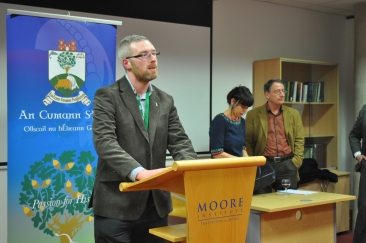








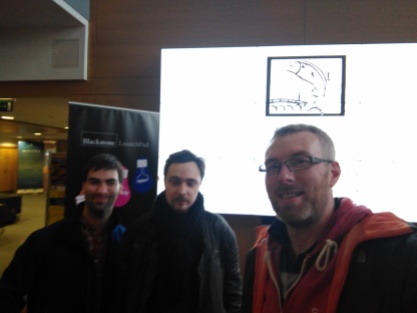


























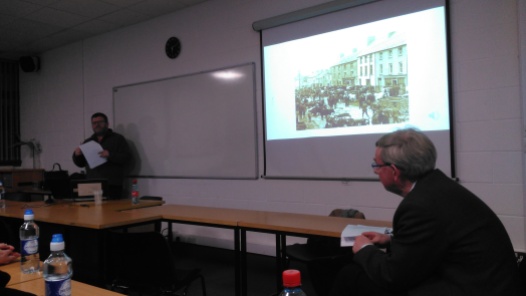











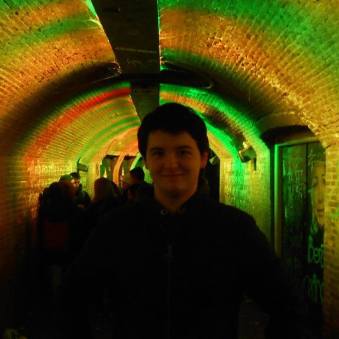
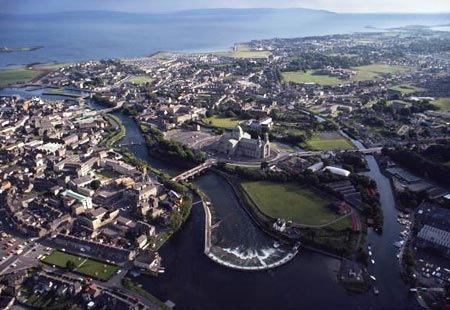





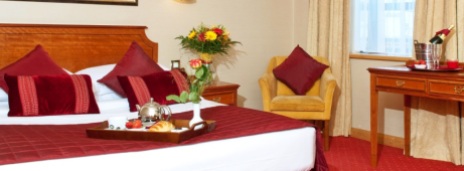






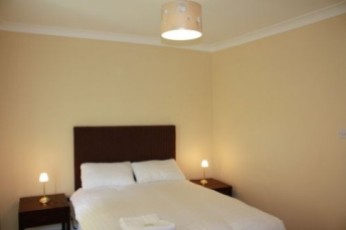
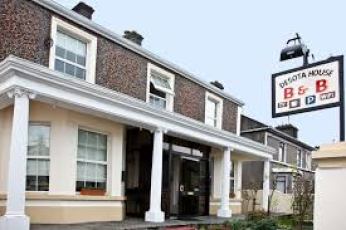






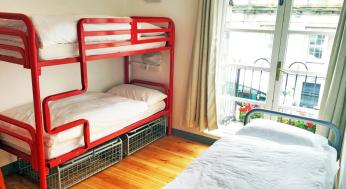

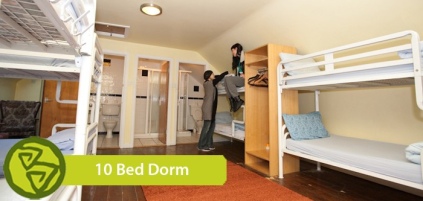




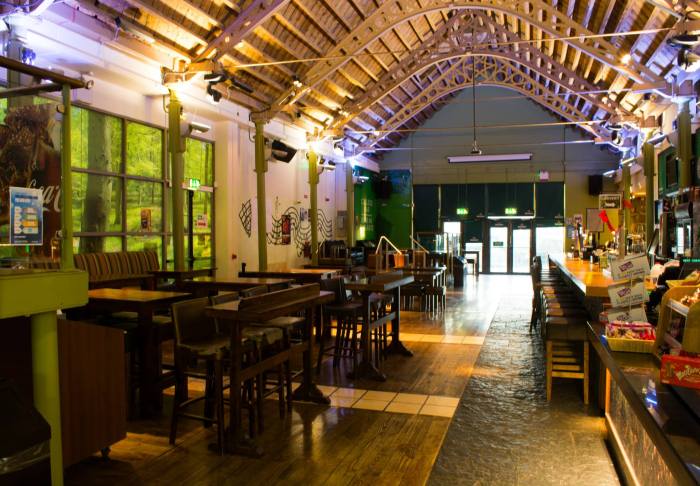
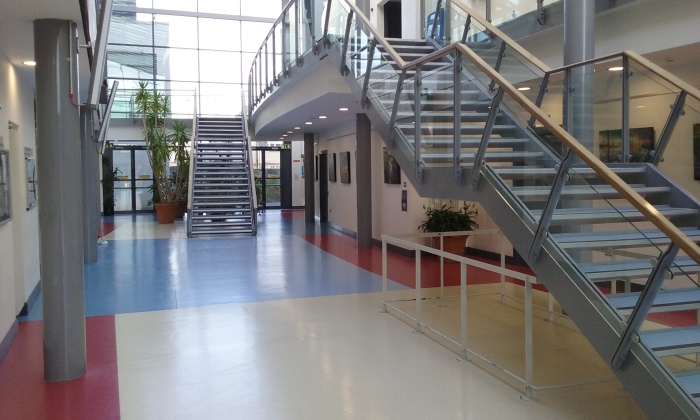 The panels will be held in the adjacent tutorial rooms (each can seat 30 participants) in the Arts Millennium Building. The rooms open directly out on to the foyer, meaning it will take less than a minute to reach the lovely tea! The workshop will also take place in the AMB, in the Ó Tnuthail Theatre, accessed via the stairs in the atrium of the AMB and also via the rear exit on the ground floor of the AMB.
The panels will be held in the adjacent tutorial rooms (each can seat 30 participants) in the Arts Millennium Building. The rooms open directly out on to the foyer, meaning it will take less than a minute to reach the lovely tea! The workshop will also take place in the AMB, in the Ó Tnuthail Theatre, accessed via the stairs in the atrium of the AMB and also via the rear exit on the ground floor of the AMB.